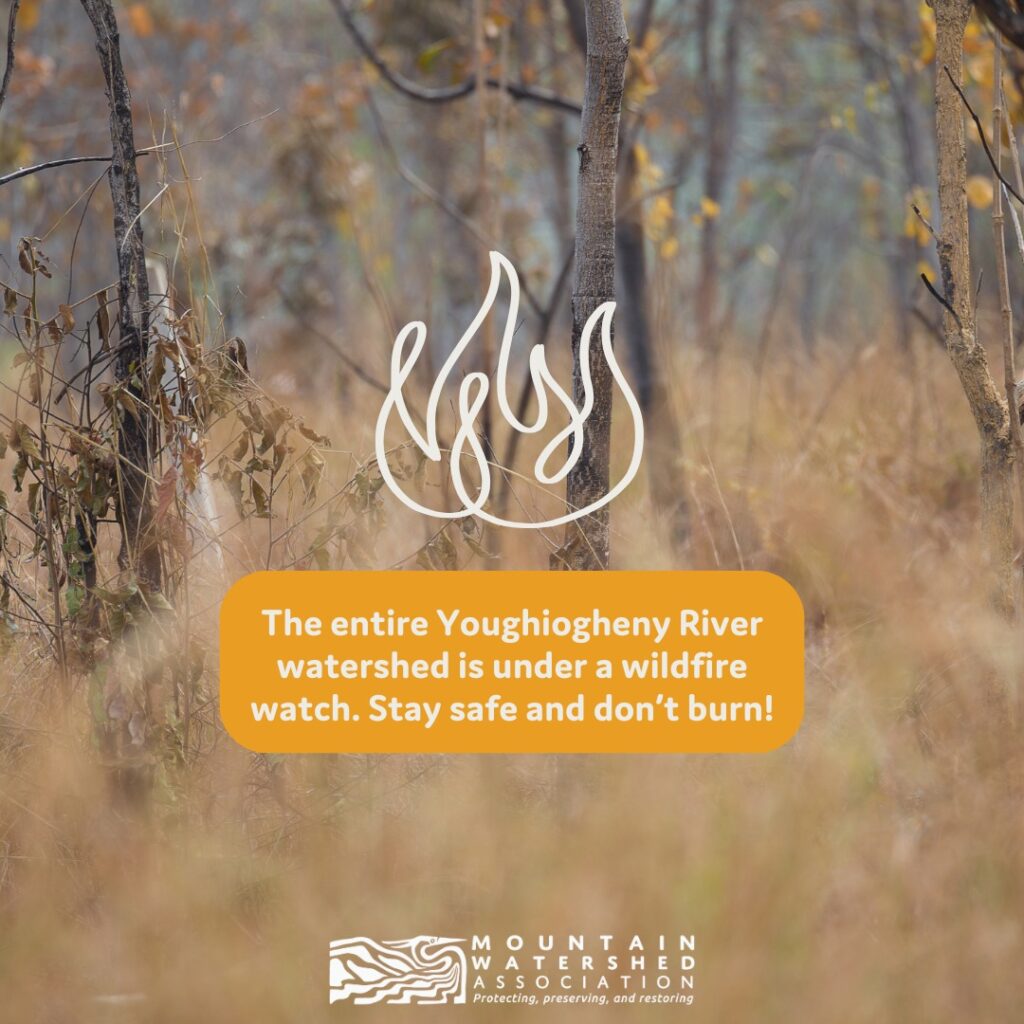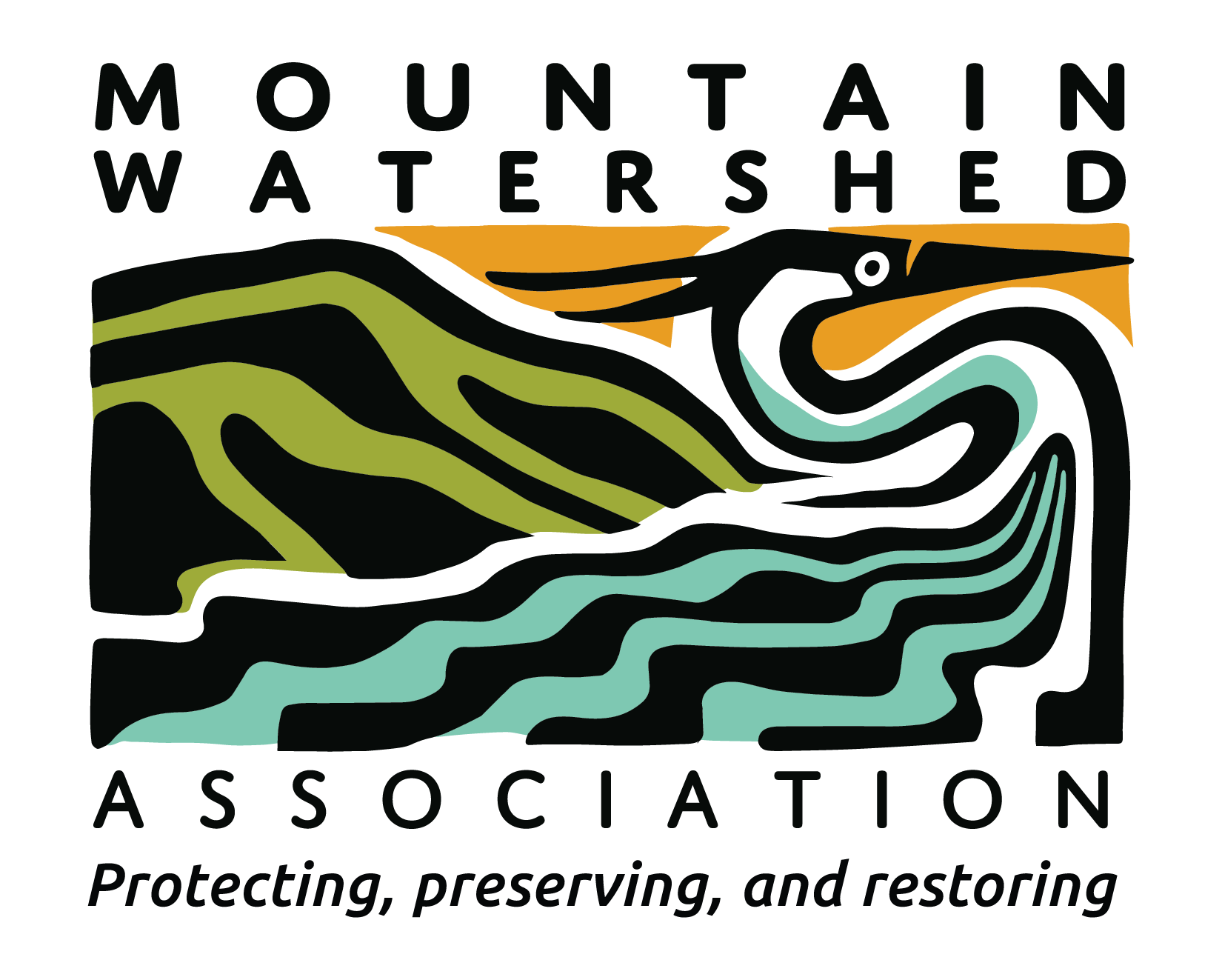
To reduce the risk of catastrophic wildfires due to dry weather conditions, low water levels in communities, and fire activity, Pennsylvania DCNR, Maryland DNR, and the state of West Virginia have all put limits on open flames in the outdoors.
Here are the details for each state in the watershed:
![]() The Maryland Department of Natural Resources implemented a statewide ban on open air burning, effective November 1, in all Maryland counties.
The Maryland Department of Natural Resources implemented a statewide ban on open air burning, effective November 1, in all Maryland counties.
Maryland has had extremely dry conditions, which led to an above average number of wildfires statewide. Conditions aren’t predicted to change much in the near future. The ban remains in effect until the Maryland Forest Service determines the state has received enough precipitation to reduce the threat of wildfires statewide.
A 2007 state law authorizes the Department of Natural Resources’ Secretary, at the recommendation of the Maryland Forest Service, to implement such a ban when landscape and weather conditions warrant.
Open-air burning such as campfires as well as charcoal grilling are not permitted under the burn ban, but state law does permit the use of propane grills. The law defines open-air burning as a fire where any material is burned in the open or in a receptacle other than a furnace, incinerator, or other equipment connected to a stack or chimney.
Authorized agents of the Maryland DNR and all police officers that enforce state laws may enforce the restrictions. The fine for a first citation for violating the ban is $300.
More information is available here.
![]() West Virginia Gov. Jim Justice issued a proclamation that bans all outdoor burning throughout West Virginia, effective November 4.
West Virginia Gov. Jim Justice issued a proclamation that bans all outdoor burning throughout West Virginia, effective November 4.
The ban, which is necessary due to the continuation of dry weather conditions and low water levels, is in effect until circumstances improve and the Governor rescinds the order by further proclamation.
The Governor’s order makes it unlawful for any person in the state to engage in outdoor burning, including fires built for camping, the burning of debris, or warming. There are exceptions made for a few types of fires used in land clearing, chemical production, outdoor fund-raising events, and a few more categories.
the proclamation orders the Division of Natural Resources, the Office of the State Fire Marshal, the Department of Homeland Security, and the State Police to cooperate in the enforcement of this ban, but it does not specify a fine.
Read the full proclamation here.
![]() The Pennsylvania Department of Conservation and Natural Resources is prohibiting campfires on state park and forest lands until further notice, and encouraging Pennsylvanians to avoid burning on all lands amid extremely dry conditions across the Commonwealth, effective November 5.
The Pennsylvania Department of Conservation and Natural Resources is prohibiting campfires on state park and forest lands until further notice, and encouraging Pennsylvanians to avoid burning on all lands amid extremely dry conditions across the Commonwealth, effective November 5.
Although there was heavy rain and flooding in the spring, conditions recently have been incredibly dry. This weather, paired with sunny days, unseasonably warm temperatures, and low humidity, have heightened wildfire risk.
Pennsylvania has experienced 100 reported wildfires in the past week, with many more unreported. Several volunteer firefighters have been injured in blazes, and ongoing wildfires have strained state and local resources.
PA DCNR recommends people avoid burning on all lands across the state, not just public lands. Check out this list of county-level burn bans in Pennsylvania.
These recommendations cover the entirety of the Youghiogheny River watershed, and reflect the severely dry conditions that have occurred over the past 6 months. Please refrain from burning, and remember – even a week of rain may not be enough to lift these burning recommendations.

